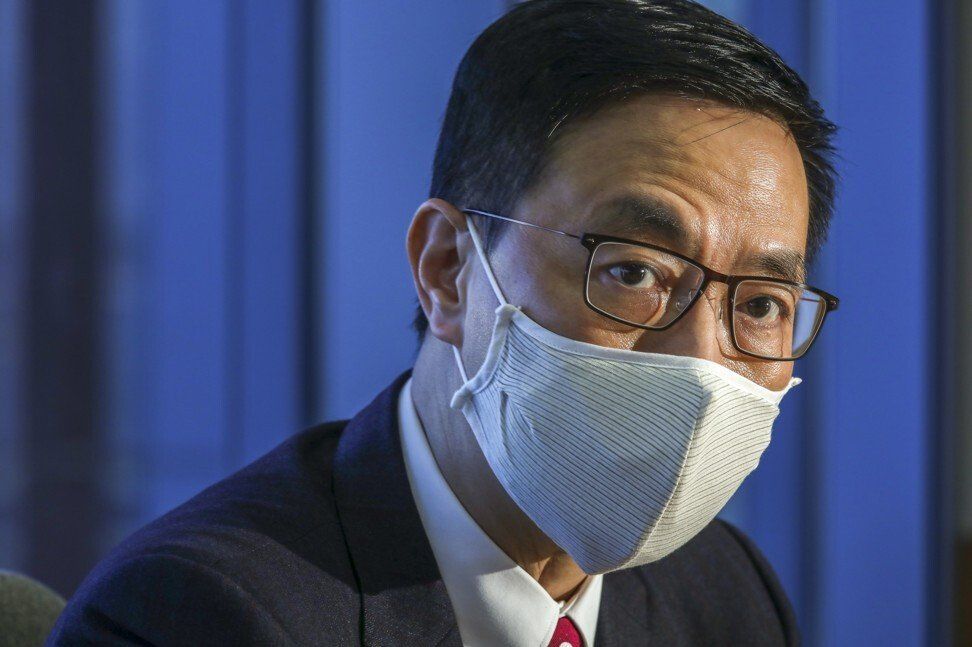Hong Kong News

Hong Kong teachers ‘free to critique nation’ after liberal studies overhaul
Hong Kong teachers can still hold classroom discussions on the drawbacks of mainland China’s political and legal systems under a proposed overhaul of liberal studies that will focus on patriotism and national identity, according to the education minister.
Secretary for Education Kevin Yeung Yun-hung on Sunday upheld the rights of teachers to engage pupils in “objective and factual” analysis following the release of a consultation paper on revamping the subject, which would include covering the “achievements of the nation” in areas such as high-end technologies and alleviating poverty.
The subject, which is mandatory for senior secondary pupils, would be renamed and relaunched in September at the earliest, after being plagued by
controversy in recent years. Pro-establishment figures have repeatedly blamed the subject for what they describe as the radicalisation of Hong Kong’s youth and encouraging violent acts during the 2019 anti-government protests.
Under the proposed remodelling of the subject, which was first introduced in 2009 to help cultivate pupils’ critical thinking skills, more than half of the course would be dedicated to topics relating to national security, identity, lawfulness and patriotism.
Focal points include the “one country, two systems” framework for governing Hong Kong, national symbols and the central government’s improvements to quality of life and the country’s strength. Students would also be required to take trips to the mainland under the draft syllabus.
“During discussions in classrooms, when [teachers] touch on the economic and technological development of mainland China, whether they would also bring along problems, of course it would be allowed,” Yeung told a television show broadcast on Sunday.
Asked whether the shortcomings of the mainland’s political and legal systems – such as a lack of prison visitation rights by families in politically sensitive cases – could also be touched on in lessons following the revamp, Yeung said such discussions would be allowed as long as they were “based on objective and factual information”.
“On the difference of the legal system between Hong Kong and China, it is actually a good opportunity to let [pupils] know there are differences under the one country, two systems framework.”
He added: “But whether which system is better, there is no definite answer. Students can rationally analyse the pros and cons of the two systems based on [objective facts] … such that they can eventually reach their own judgment.”
 Hong Kong’s education minister Kevin Yeung.
Hong Kong’s education minister Kevin Yeung.
But Tin Fong-chak, a veteran liberal studies teacher and vice-president of the Professional Teachers’ Union, said teachers did not feel reassured by Yeung’s remarks, while raising concerns that more educators might be inclined to self-censor following the relaunch.
“Teachers might be even more discreet with the introduction of this overhaul. They may avoid discussing sensitive issues, and when pupils raise questions in classrooms … they may be hesitant to share with them their own thoughts,” Tin said.
“Under the current political atmosphere, teachers are also receiving more complaints overall. Teachers would worry whether [sensitive] topics can really be discussed in classrooms [without consequences or retributions].”
Changes to the subject would also require mandatory vetting of all textbooks by publishers. Given the tight timeline before the first batch of pupils started the new syllabus in September, Yeung said the Education Bureau would provide more teaching materials for schools to use in the coming months.
The minister also rejected claims the reforms were an attempt to reintroduce an independent national education subject, although he said more information about national development and security was needed in various subjects.
An all-encompassing set of guidelines released by education authorities on Thursday detailed how schools should implement national security education in different subjects, including civic education, biology, history and even music.
Under the guidelines, pupils as young as six would be taught the four main offences of the Beijing-imposed national security law– subversion, secession, terrorism and collusion with foreign forces – while schools were told to call police when “grave or emergency” situations emerged on campus involving students staging anti-government protests or displaying slogans.
Yeung said the government would hold soon forums and briefings for schools to familiarise them with the guidelines and give staff members an opportunity to ask questions.











